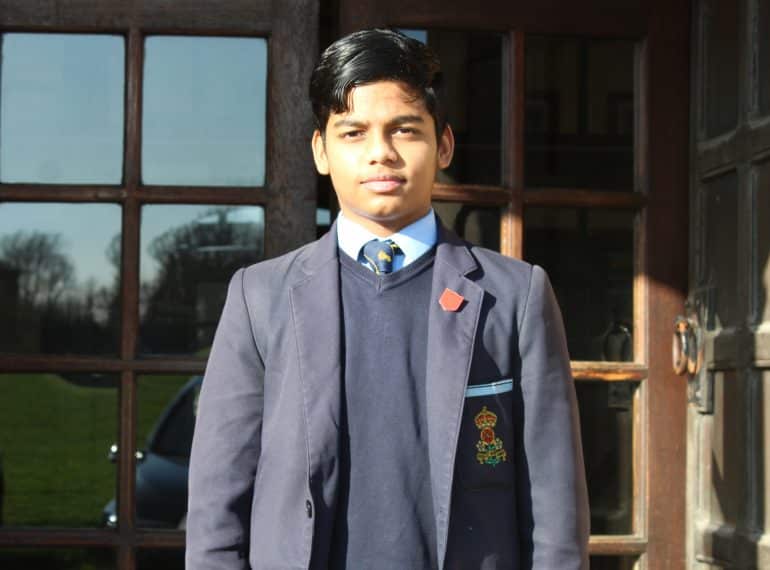
Year 10 pupil Ashwin Sridhar’s design for a doorstep smart box to stop delivery packages being stolen has won a top prize in an international competition.
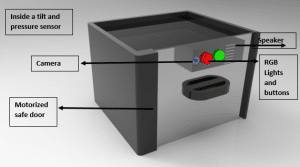 Ashwin’s device, which he named the Raptor Adversus, uses a host of measures to thwart thieves trying to gain access to packages inside – and even sounds the alarm if anyone tries to steal the whole box.
Ashwin’s device, which he named the Raptor Adversus, uses a host of measures to thwart thieves trying to gain access to packages inside – and even sounds the alarm if anyone tries to steal the whole box.
The Raptor Adversus won him the Best in Show, Senior Division Europe award, in SAM Labs’ STEAM and Coding Creators Competition. Through the global competition, SAM Labs – a UK-based company making app-enabled construction kits widely used in education – challenged pupils in Covid-19 lockdown to showcase their coding projects.
Ashwin’s award was announced in a global awards livestream broadcast.
Congratulating him, QE Head of Technology Michael Noonan said: “Ashwin’s competition entry was well illustrated and included an account of the three different iterations of his device, thus demonstrating that he had worked very methodically to tackle the problem of package-stealing.”
The competition submission began by outlining the problem. “Online delivery has been integrated into our society,” Ashwin wrote. “Forbes estimates the average person in the United States receives up to 21 packages a year. However, with online delivery’s increase in popularity, a new epidemic has arisen – package-stealing.”
Using CAD software, Ashwin designed a device aimed not only at preventing thefts, but also at deterring thieves from even making the attempt.
His Raptor Adversus (meaning ‘against a thief’) design features:
- A motorised safe door opened with a passcode known to the homeowner and shared with the postman or delivery person
- An audible alarm
- A camera
- A tilt-and-pressure sensor
- Coloured indicator lights coded to indicate whether or not the box is empty and whether a letter or parcel is inside.
His initial iteration was designed to take a photo and send it to the homeowner’s phone when anyone used, or attempted to use, the passcode system. The alarm would sound – drawing the attention of people in the area, in case the person at the box was a would-be thief. Only then, after a delay, would the box open.
Ashwin realised that this would only deter thieves who were actually attempting to open the box, so his first refinement was to include a proximity sensor (with a range that could be adjusted by the owner) that would sound an alarm and take a photo of anyone who got close.
In the third iteration, he added the tilt sensor to sound an alarm if anyone tried to remove the whole box.

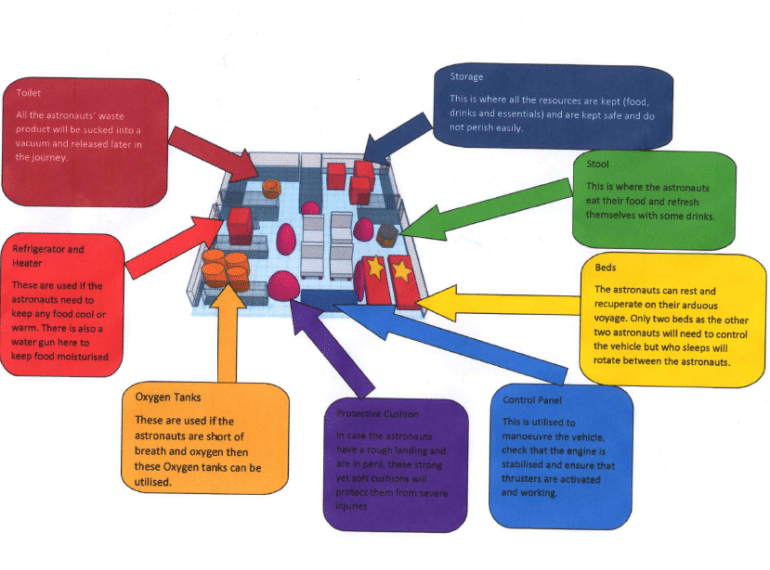
 The team, who are all from the same Year 9 Pearce form group, took the Innovation Award in the Galactic Challenge One Small Step competition with their design for a vehicle to explore the Moon’s surface in 2030 in preparation for establishing a human settlement there.
The team, who are all from the same Year 9 Pearce form group, took the Innovation Award in the Galactic Challenge One Small Step competition with their design for a vehicle to explore the Moon’s surface in 2030 in preparation for establishing a human settlement there.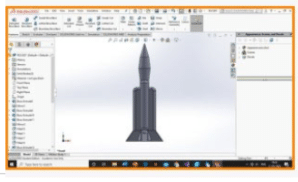 Entrants were asked to produce a design for a vehicle that would be home to four astronauts during a six-month mission, taking into account factors such as how electrical power would be provided and what would be needed to support the astronauts’ living conditions.
Entrants were asked to produce a design for a vehicle that would be home to four astronauts during a six-month mission, taking into account factors such as how electrical power would be provided and what would be needed to support the astronauts’ living conditions.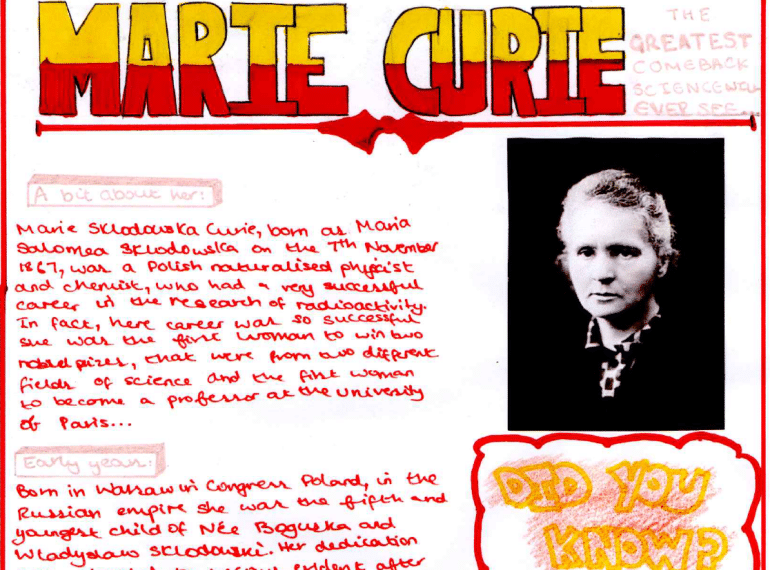
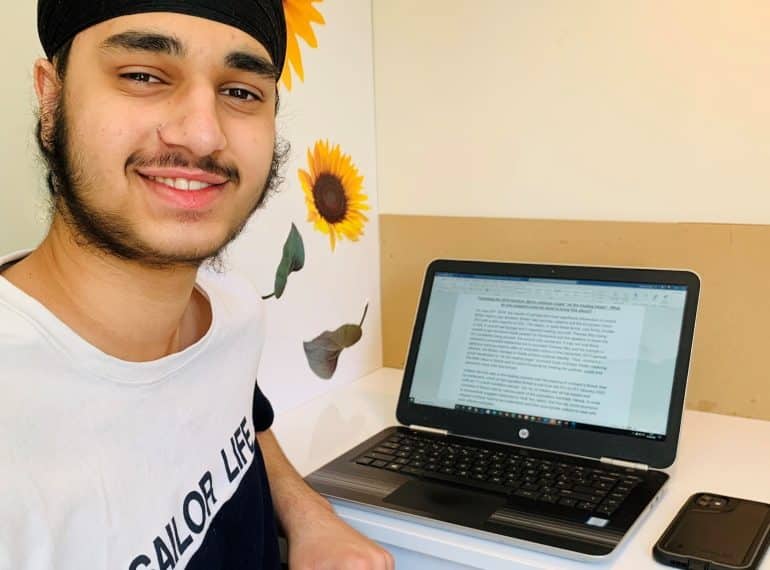
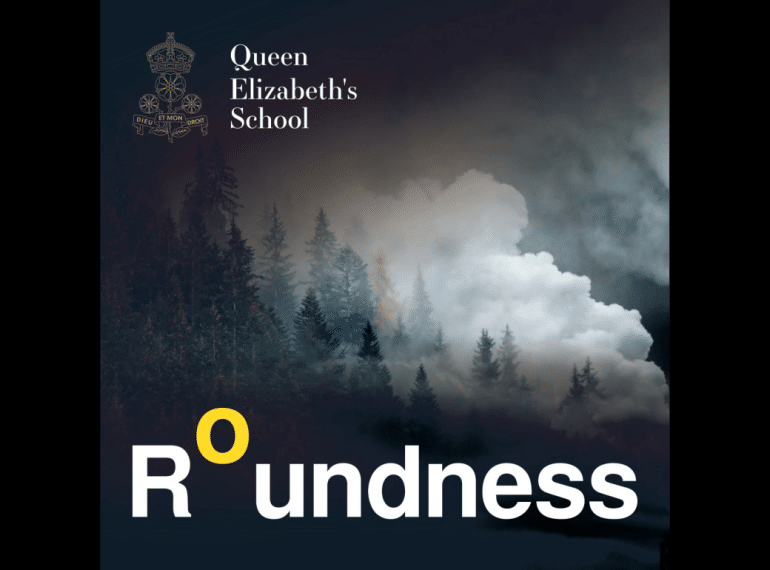
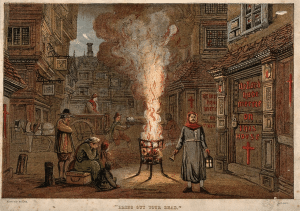 Both the podcast and the account – about Samuel Pepys and the Great Plague of 1665 – are part of an extensive selection of content curated by Head of Library Services Surya Bowyer for boys to access during the pandemic lockdown.
Both the podcast and the account – about Samuel Pepys and the Great Plague of 1665 – are part of an extensive selection of content curated by Head of Library Services Surya Bowyer for boys to access during the pandemic lockdown.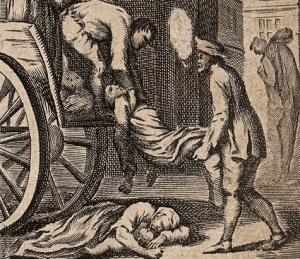 Mr Bowyer adds: “One coping strategy when we face a crisis like Covid-19 is to document our experiences in some way. More than 350 years ago, that was exactly what Samuel Pepys, a young civil servant living in London, did in his diary when the capital was hit by the Great Plague in 1665 – the worst epidemic in England since the Black Death of 1348. His reaction, and that of his fellow Londoners, is set out in our Pepys and the plague page.”
Mr Bowyer adds: “One coping strategy when we face a crisis like Covid-19 is to document our experiences in some way. More than 350 years ago, that was exactly what Samuel Pepys, a young civil servant living in London, did in his diary when the capital was hit by the Great Plague in 1665 – the worst epidemic in England since the Black Death of 1348. His reaction, and that of his fellow Londoners, is set out in our Pepys and the plague page.”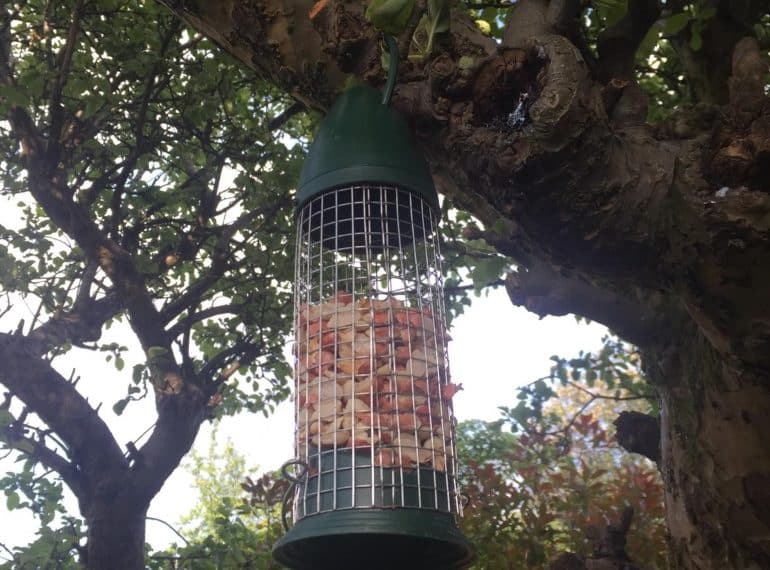
 With this year’s Earth Day theme being Climate Action, the winner of the writing competition emphasised the importance of using the right people to convey environmental messages, while the victor in the parallel photography competition emphasised the positive impact that even small steps could have.
With this year’s Earth Day theme being Climate Action, the winner of the writing competition emphasised the importance of using the right people to convey environmental messages, while the victor in the parallel photography competition emphasised the positive impact that even small steps could have.